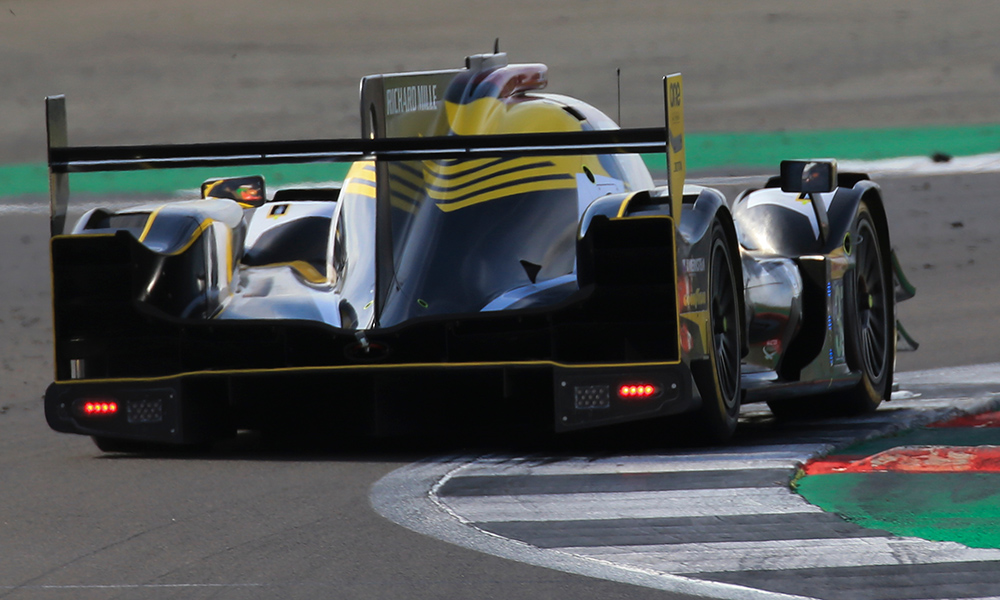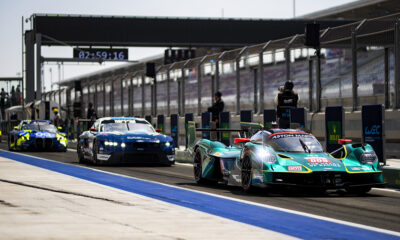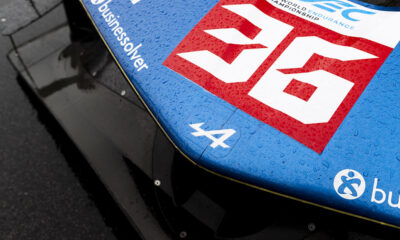
Photo: MPS Agency
Rebellion CEO Calim Bouhadra says he could “totally imagine” a LMP2 car winning overall under the new success handicap system imposed on LMP1 cars in the FIA World Endurance Championship.
The system, which will come into effect beginning with next month’s second round of the season at Fuji Speedway, has been aimed to help balance the LMP1 field through a series of performance handicaps based on results from previous races.
A correction factor of 0.008 seconds/km is multiplied by the length of the circuit and the points difference between each LMP1 car to the last-placed car from the previous race determine the size of each penalty.
Detailed in a bulletin sent to competitors prior to the season-opener, handicaps are expected to begin in the 0.6-second range per lap for the Silverstone race-winning Toyota TS050 Hybrid but could continuously increase as the season unfolds, should the car continue achieve wins.
Certain caps, however, are imposed and cars not contesting the entire championship, such as the No. 3 Rebellion R13 Gibson, will run equal to the most penalized car utilizing the same technology.
While handicap numbers and penalties have yet to be published for Fuji, Rebellion’s Bouhadra said the current unknowns pose a number of questions that remain to be answered until seeing the effects on track.
“My concern with success ballast is to know if at the end of the championship – because we are going to have balance no matter what car we are – I am worried to have an LMP2 coming through [to the podium],” he told Sportscar365.
“They are so quick already now. I don’t know what is the effect of the ballast.
“Imagine if the ballast is really strong, and we have some issue during the race, you can totally imagine that an LMP2 can win the race.”
The system, which is understood to have been jointly developed by the FIA and ACO with assistance from Toyota Gazoo Racing, however, has largely been applauded by teams, including Rebellion.
“I will say that I prefer this situation than the situation of last year,” Bouhadra said. “It’s a good idea to put a handicap on the cars that win races.
“For us, it means that if it’s like last year, we are going to have a good chance to win something.
“For sure, it’s difficult for us to know or understand where this level of ballast is going to make an advantage.
“What I have wanted since the beginning is that the EoT would be as good and as fair as possible to make the competition very hard, to attract the public and the passion, and not make us upset after two laps.
“I will say that the success ballast is probably, for me, just a little fine-tuning of the EoT. Normally, the EoT regulates the situation, but the success ballast will do some fine-tuning to make the competition fair.”
Vasselon: Teams “Cannot Escape” Success Handicap
Toyota Gazoo Racing technical director Pascal Vasselon has insisted that championship-seeking teams will not be able to manipulate the system to their advantage, although admitted that a car not running for the title could “sacrifice” races to have a chance to win.
“You cannot escape here,” Vasselon said. “Because if you want to win the championship, you have to score points. As soon as you score points, you get a penalty.
“If someone doesn’t go for the championship, then the team can decide where [it wants] to win. If you don’t go for the championship, you can sacrifice races and the championship to do good at some places.
“But if you go for the championship, you just cannot. Every single point gives you a penalty. This is the beauty of this system compared to other systems.”
Vasselon explained that success handicap goes beyond a typical penalty-based systems that are usually only applied to the podium finishers.
“What people have in mind with success ballast is that you can work around it,” he said. “Typically, sometimes you have success ballast for first, second and third.
“The problem is that you’re fourth you score points but you don’t get ballast. So what do teams do? They score fourth, fourth, fourth, to always be there and not get ballast while they score points.
“This is why here… the system we have in place now, every single point gives you the same. It cannot work [otherwise].
“If you decide to not win a race where you could win, you are damaged for the rest of the championship; you cannot recover because you’ve lost the opportunity. This is the beauty of the system.”
Daniel Lloyd contributed to this report

























